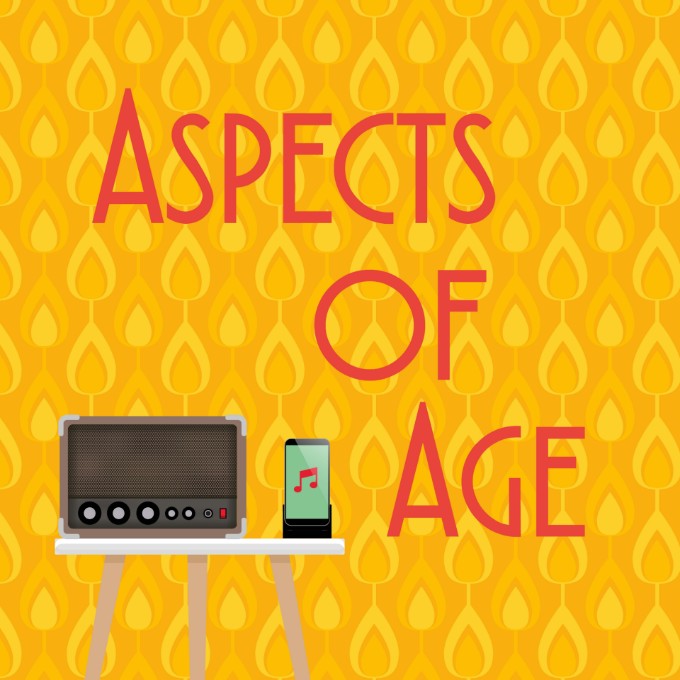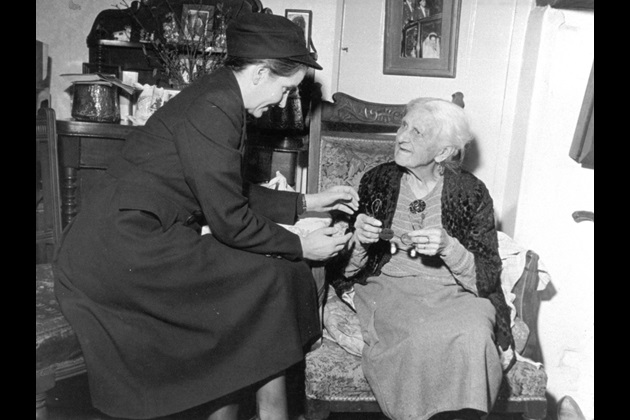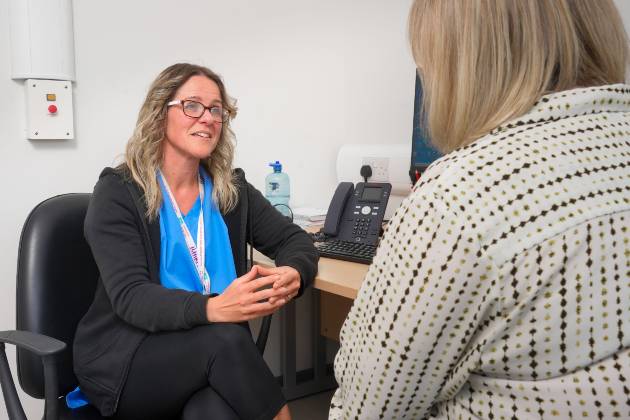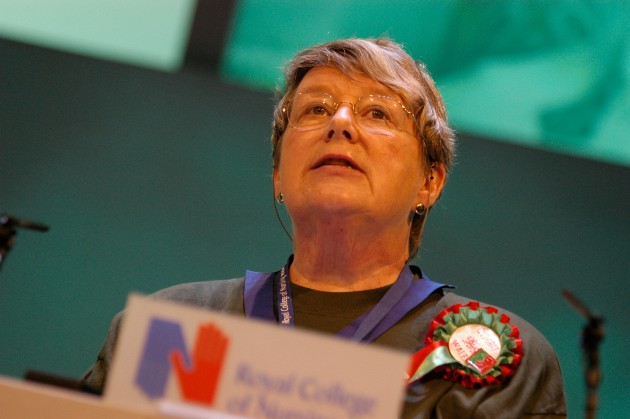A new RCN Library exhibition explores how the care of older people has changed since the 19th century and how specialist nurses can help destigmatise old age
Care of older people in the UK has changed dramatically in the past two centuries. A new exhibition at the RCN Library and Heritage Centre in London explores the place of nursing within this.
Created with the help of the RCN Older People’s Forum and the History of Nursing Society, Aspects of Age charts the shift from the days of Victorian workhouses to at-home care and future technologies.
“We’ve looked at the perceptions of older people’s care over the years and tried to make the exhibition representative of the real diversity of older people today,” says Dawne Garrett, RCN professional lead for the Older People's Forum.
Life expectancy in England and Wales has nearly doubled since the 1840s and, with that, our ideas of what older age can look like have changed. Now, older people are just as likely to need sexual health advice or vaccinations for their next holiday as they are dementia care or a flu jab.
“The exhibition is about recognising the possibilities of older age,” says Dawne. “There’s no such thing as a typical older person. Their opportunities are much wider than they have been, but alongside that, we must recognise that there still is stigma around older age.”

This stigmatisation was widespread in the 19th century, when poorer elderly people were sent to squalid workhouses. Nursing care was often delivered by older female inmates.
As the public began to protest workhouse conditions, care shifted to local authorities and hospitals. In 1936, matron Eva Huggins and geriatrician Dr Marjory Warren began providing proper diagnoses for older people at West Middlesex County Hospital and discharging those fit to go home.
In following decades, specialist hospital units were designed for older people. Yet with more people living longer, other options were needed. Old people’s homes already existed, but new legislation in the 1980s required each home to have a registered nurse or medical practitioner.
Making progress
“There are many people for whom age is irrelevant to their care, but there are some who have issues relating to ageing who require highly specialist, highly intensive nursing,” says Dawne.
We now have care homes staffed by experienced care assistants, with district nurses calling in for more complex issues, and nursing homes with 24-hour support from a registered nurse. And there’s an increasing effort to provide nursing care in people’s homes.
We need wider ethical discussions around end-of-life care and a focus on giving people a good quality of life, not simply extra years of life
“For people who require care at home, there is a need to ensure they have adequate professional supervision and understand the impact not just on the person but also on their wider family,” says Dawne. “Nursing has a really important role in leading on this.”
Nursing staff can also help tackle the stigma around ageing and enable all older people to live life to the full.
Dawne says: “We need wider ethical discussions around end-of-life care and a focus on giving people a good quality of life, not simply extra years of life.”
Visit the Aspects of Age exhibition at RCN headquarters in London until 20 September 2019, then at:
- RCN Wales Library, until 20 December 2019
- RCN NI Library, until 28 February 2020
- RCN Scotland, until 30 April 2020
To find out more, visit the RCN Library exhibitions and events pages








